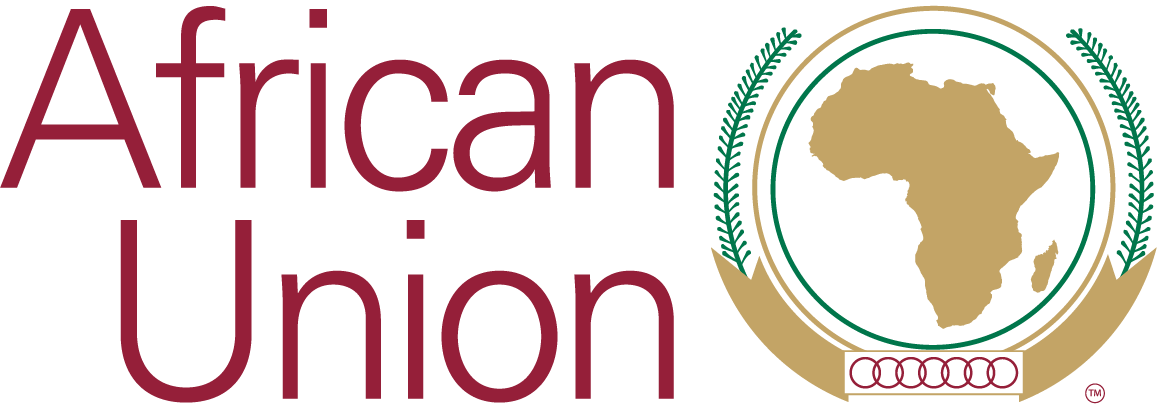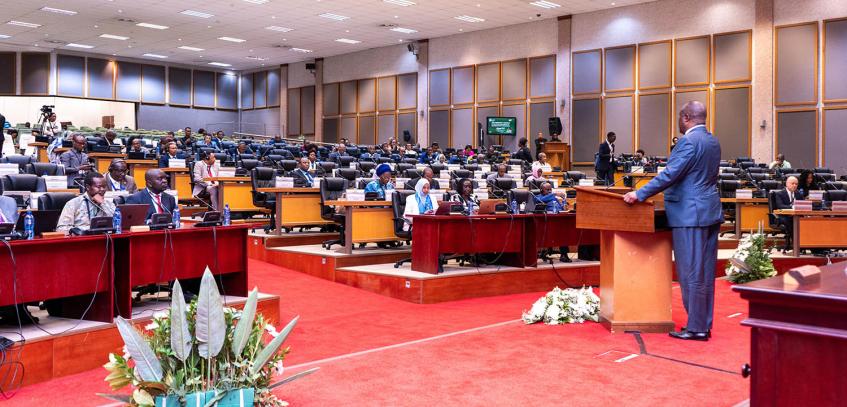The fourth Ordinary Session of the sixth Pan-African Parliament is underway, marking a pivotal moment that highlights the challenges and opportunities facing the institution as it works to advance Africa’s collective aspirations. Today’s plenary brought together parliamentarians and experts to discuss the draft Pan-African Strategic Plan for 2024-2028, reviewing past achievements and charting a course to realize the continent's development goals.
The session opened with an address from H.E. Chief Fortune Charumbira, President of the Pan-African Parliament, who emphasized the need for a strategic plan that could effectively navigate Africa's complex political, economic, and social landscapes. “We must rise to the challenge of designing a plan that reinforces our commitment to a better Africa,” he remarked, calling for a unified vision and collective action.
The proposed 2024-2028 strategic plan aims to align the Parliament’s objectives with the African Union’s Agenda 2063 and the AU’s 2024 theme, “Educate an African Fit for the 21st Century: Building Resilient Education Systems for Increased Access to Inclusive, Lifelong, Quality, and Relevant Learning in Africa.” Recognizing education as a cornerstone of development, the plan focuses on creating inclusive, accessible systems that foster a knowledge-based economy, reduce inequality, and promote a prosperous Africa.
Amid ongoing global and regional challenges, the strategic plan acknowledges the importance of addressing both internal and external factors influencing Africa’s development. In recent years, the continent has faced political instability, economic setbacks, widening social disparities, and environmental crises. These challenges have tested the resilience of the Pan-African Parliament, which seeks to ensure African voices are represented in international discussions on critical issues such as global security, trade, and climate change. Through this draft strategic plan, the Parliament aims to be a strong advocate for peace, development, and inclusivity, with a focus on youth empowerment, gender equality, and sustainable growth.
The draft strategic plan is informed by a thorough analysis of the institution’s strengths, weaknesses, opportunities, and threats (SWOT). Its strengths include its continent-wide scope, alignment with AU frameworks, and its capacity to engage diverse stakeholders, from governments and civil society organizations to the private sector. However, the plan also identifies weaknesses that hinder the Parliament’s effectiveness, such as the non-binding nature of its decisions, budget limitations, and limited public visibility. These challenges impact the institution's ability to fulfill its mandate and achieve meaningful outcomes. Opportunities highlighted include the potential ratification of the Malabo Protocol, which would grant the Parliament legislative powers, and initiatives like the African Continental Free Trade Area (AfCFTA) that could strengthen integration. Collaboration with youth organizations to tackle emerging issues such as climate change, unemployment, and education also presents a promising avenue.
Conversely, the strategic plan acknowledges threats the Parliament must navigate, including geopolitical tensions, political resistance to deeper integration, and Africa’s vulnerability to cyber threats and disinformation. Global power shifts and economic uncertainties further complicate the Parliament’s mission to advocate for Africa’s interests. The plan, therefore, emphasizes a flexible and responsive approach to these challenges, underscoring the importance of strategic partnerships and innovative solutions to secure the continent’s future.
The draft plan outlines four key strategic objectives. First, it aims to develop model laws addressing critical areas such as labor rights, gender equality, human rights, and climate change, providing legal frameworks that member states can adapt. A second major objective is to enhance the Parliament’s oversight role over AU policies and budgets, ensuring efficient allocation of resources to achieve development goals. Third, the plan seeks to bolster the Parliament’s advocacy role in global forums, particularly concerning trade and climate policy. Lastly, it focuses on increasing the Parliament’s financial sustainability by diversifying funding sources, reducing dependency on donor aid, and securing long-term resources for its programs.
As discussions continued, there was a strong emphasis on the need for collaboration and accountability. Parliamentarians and stakeholders called for a cohesive approach to implementing the strategic plan, which will require significant coordination with AU bodies, regional organizations, and national governments. Building internal capacity within the Pan-African Parliament, especially in human resources, technical expertise, and research, was also seen as essential for success. Developing a detailed implementation framework with timelines, measurable outcomes, and regular monitoring will be critical in ensuring the plan’s goals are met.
The session adjourned with a sense of anticipation, as participants are set to reconvene on Monday to refine the strategic plan. While progress was made, this meeting marks only the beginning of a crucial process to shape Africa’s legislative agenda for the next five years. The Pan-African Parliament’s future role as a champion for the continent’s development depends on the successful implementation of this plan. The decisions made here will significantly influence Africa’s trajectory toward unity, progress, and development, underscoring the importance of sustained engagement and commitment from African leaders to build a future marked by prosperity, innovation, and collaboration across the continent.
-Ends-








